MercoPress. South Atlantic News Agency
Tag: Guyana
-
Saturday, March 23rd 2019 - 07:31 UTC
Seven countries have launched the Forum for Progress of South America
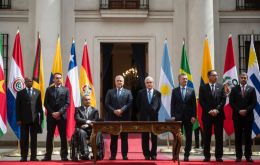
South American countries on Friday launched the Forum for the Progress of South America (Prosur), a new regional bloc which seeks the “integration and strengthening of the region.”
-
Friday, February 8th 2019 - 08:49 UTC
Two more oil strikes off the coast of Guyana at the prolific Stabroek Block
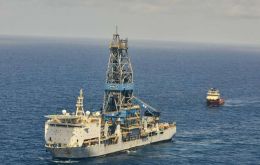
Hess Corporation has announced positive results from the Tilapia-1 and Haimara-1 wells offshore Guyana, bringing the total number of discoveries on the Stabroek Block to 12.“These two discoveries demonstrate the continuing exploration potential on the prolific Stabroek Block and add to the previously announced gross discovered recoverable resource estimate of more than 5 Bboe,” said CEO John Hess.
-
Saturday, January 12th 2019 - 10:39 UTC
Argentina calls on Venezuela and Guyana for a peaceful resolution to the Essequibo controversy
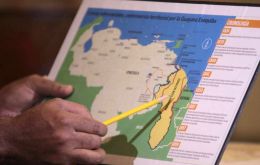
Argentina has called on Venezuela and Guyana to favour dialogue and a peaceful resolution, in conformity with International Law, regarding their territorial controversy over the region of Essequibo.
-
Wednesday, January 9th 2019 - 08:39 UTC
ExxonMobil resumes exploratory drilling off Guyana; first FPSO expected at the end of the year

US energy company ExxonMobil has started drilling one of two new exploration wells offshore Guyana. It’s the first of two wells to be drilled this month. The world’s largest publicly traded international oil and gas company said in a statement that the Stena Carron drillship is drilling the Haimara-1 well, located 19 miles east of the Pluma-1 discovery in the southeast Stabroek Block.
-
Monday, December 24th 2018 - 14:24 UTC
Venezuelan Navy repels oil exploring ship, triggers international diplomatic conflict with Guyana
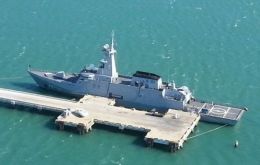
Venezuela's Foreign Minister Jorge Arreaza has demanded that Guyana respect its sovereignty after two ships of the transnational company ExxonMobil were repelled Saturday from what the Bolivarian Navy deemed to be their country's waters. But both the governments of the United States and of Guyana claim it was Venezuela who was in breach of international law.
-
Thursday, December 6th 2018 - 08:24 UTC
Guyana's tenth oil discovery makes her a future Latin American powerhouse
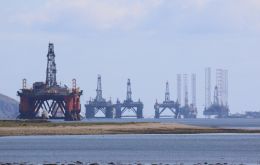
Thanks to ExxonMobil’s run of success in oil exploration offshore Guyana, the country is on a path to becoming a Latin American powerhouse, Wood Mackenzie said. The super-major announced its tenth Guyana discovery this week, increasing the discovered recoverable resource in its Stabroek Block to more than five billion barrels.
-
Saturday, June 23rd 2018 - 10:27 UTC
Exxon-Mobil made its eighth major oil discovery offshore Guyana

ExxonMobil made its eighth oil discovery offshore Guyana at the Longtail-1 well in the Stabroek Block on June 20. The company encountered 256 feet of oil-bearing sandstone. The well was drilled to 18,057 feet depth in 6,365 feet of water.
-
Friday, June 1st 2018 - 07:35 UTC
Guyana on the global energy map: oil production expected to reach 600.000bpd

The Norwegian oil and gas research firm Rystad Energy is predicting that Guyana's oil sector could generate annual revenue of US$15 billion and that the government would pocket most of the profit generated from the explorations.
-
Monday, April 2nd 2018 - 09:03 UTC
Venezuela rejects having Guyana's Essequibo dispute taken to the International Court of Justice
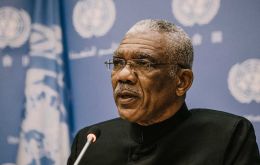
Venezuela is seeking a “practical and satisfying” solution to its border dispute with Guyana even as the Caribbean Community (CARICOM) country has already filed its application to the International Court of Justice (ICJ) in the Hague on the matter.
-
Friday, March 30th 2018 - 02:37 UTC
US to process immigration of Cubans at Guyana embassy

The United States will shift the processing of immigration visas for Cuban nationals from Colombia to Guyana starting April 1, the State Department announced. Immigrant visa applications and interviews with Cuban citizens will be conducted and processed at the United States Embassy in Georgetown, Guyana.
